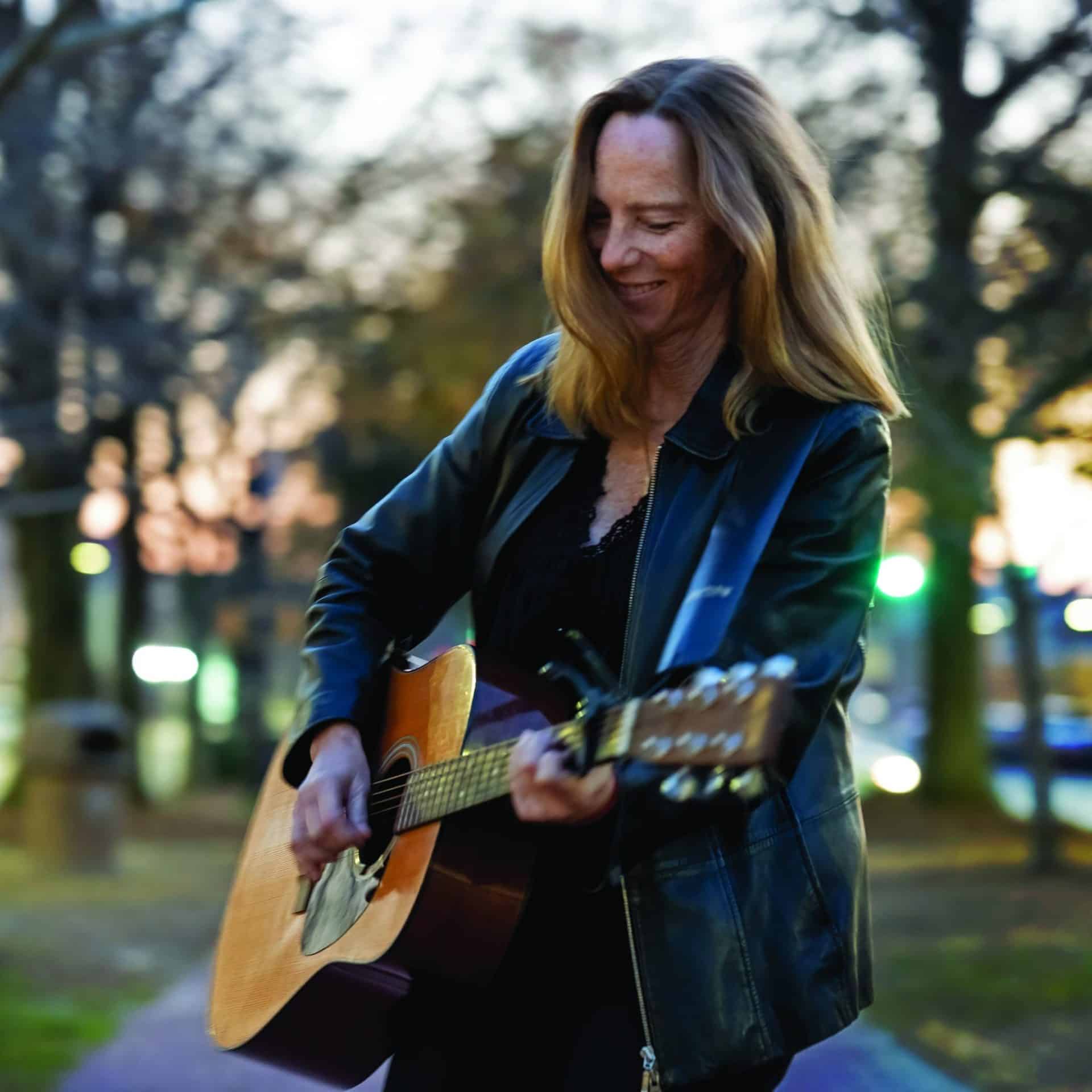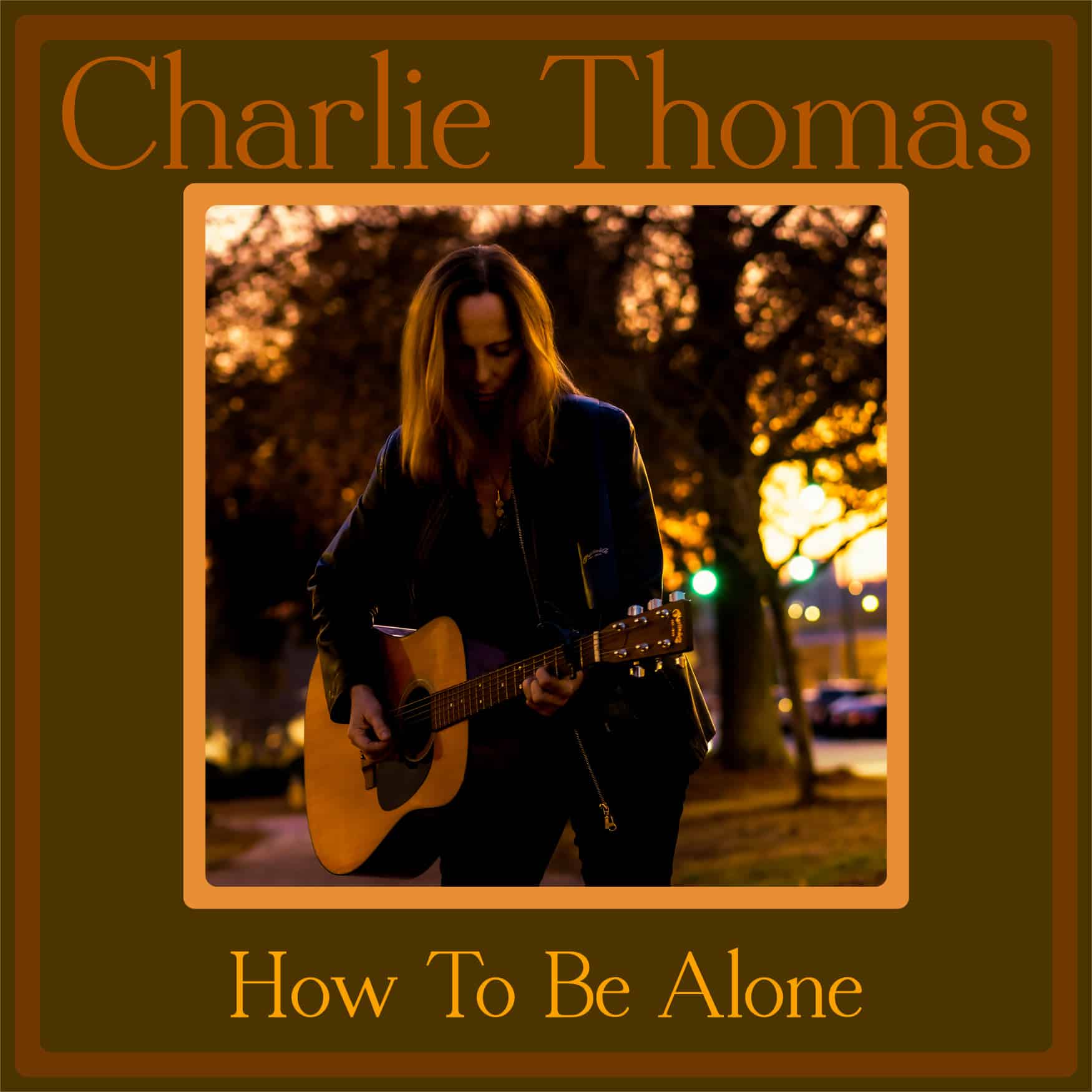On her new solo effort, How to Be Alone, Charlie Thomas captures the lonely freedom of a heartbroken lover walking a city at night. Across seven masterfully sequenced tracks, the Macon, Georgia songsmith and professor of philosophy at Mercer University creates a vivid, contemplative tableau of the small truths that seem to be hiding behind all human experience– but only seen by those that take the time to look.
MM: So what would you say to someone if they were to ask, “Who is Charlie Thomas?”
CT- I guess I am someone who really has this ambition to see clearly and see the beauty in the world. I think that takes a lot of different modes in my life, so teaching and writing, and doing philosophy are all different facets of that ambition. It’s kind of the reason I was drawn to philosophy. I was well into college when I took my first philosophy class and I immediately felt at home because as far as I can remember into my childhood, I’ve always wondered about why things were the way they were. For me, songwriting is that same impulse to see things more clearly and try to figure out why they are the way they are. For instance, a lot of my songs are heartbreak songs. And there was a song I wrote on the Blue Sky Blue album called “Addiction” and I can still remember where I was when I wrote the line, “You broke me like an addiction, you flew away to save your soul.” It was only when I wrote that line that I realized that the dude didn’t really want to break my heart, he was simply trying to survive and he thought that was the best way to survive. But it was the actual saying of it in a song that it took to show me the reality of it all. It’s really the same as teaching to me because I’m trying to take some of the hardest, deepest books ever written and trying to communicate those ideas to people through song.
How long have you been writing songs?
I wrote my first song when I was about ten or eleven years old, but I stopped for a very long time. My dad, who is wonderfully supportive of me in many ways, can also be exacting, and I played the song for him and all he said was, “Well, it’s not Mozart is it?“ And he didn’t really mean to shut me down– but he did (laughs)!
Well, your dad made it clear to you that you were no Mozart but I’m pretty sure from listening to your music that Mozart is not what you were going for. So who are some of your most significant influences?
It seems very predictable, but most of the folks you hear on The Creek like Gram Parsons, Joni Mitchell, Gillian Welch, Steve Earle, Lucinda Williams, Jason Isbell… [Isbell’s] songwriting simply stops me in my tracks!
Yeah, all of those artists are pretty much solo, doing the singer/songwriter thing. Was it strange for you when you first started working on this solo project?
I had the unbelievable experience of making music with Blue Sky Blue. Seven extremely talented musicians gave us such a huge sound. It was kind of magic to write a song and then bring it to these people that after a while, we knew each other just based on instinct. But it’s also incredibly comfortable and very forgiving, so I thought it was important for me to do something a bit more vulnerable for my own sake to hear myself and see myself better and see if my songs would or could stand on their own. And it was certainly very vulnerable; you can’t help but learn about yourself.

Was it different writing songs that were intended to be performed solo rather than having your seven-piece band with you?
C: No not really, I actually have a lot of older unreleased songs. So it really was a question of picking through them. “Streets of Paris” is fairly new, as is “Little Star”. But some of those were written six years ago and it became the question as to which songs could stand to be in such a raw state.
Where was it recorded?
It’s pretty much recorded at Capricorn and the tracks that weren’t were recorded at Rob Evans’ old home studio, the Star Motel. “Cotton Ave”, in particular, was recorded at the Star Motel.
I was really moved by “Cotton Ave”. The line about you can’t help but live differently when you’ve been confronted with certain intense experiences like “true love” and “love at first sight” was such a good thought, in my opinion.
Yeah, you know a lot of the songs on the record are exploring the space between knowing that I have lived a charmed life, loving my life, but also recognizing that when you find yourself ambitious to lead the biggest life or most intense life, you have to keep yourself vulnerable. You have to recognize that sometimes, it’s going to hurt. So these songs are all in that space, like the line, “I’ve known more love than reason should allow”. I’m conscious of that but at the same time, when you have something great and then it ends, I mean wow… It’s really tough. But it’s the realization that to have had those experiences, you’ve had to be vulnerable.
It’s pretty amazing how you can write about your experiences that may be somewhat personal, yet they transcend you because they seem to be just real human truths. When I first heard the album, I was blown away because it seemed like I could have written those songs based on my last year or so. It’s almost like you just stumble into truth like that. Since you’re also a philosophy professor, I must ask– where do you think songs come from?
C: Wow… Matt, I will say, that’s such a great question– but I’m not sure I can answer that directly. I can however tell you how I would consider my better songs have come to me and it’s never when I actually tried to sit down and write a song. It is a good exercise to sit down and try to write something but the songs that I’m proudest of are never those. It’s always about being open, letting myself off the hook, like if a song shows up, I’m going to listen to it. So where do songs come from? It’s the world, learning to see the world. Almost like learning to draw is learning to see, well, I think songwriting is like that as well. My songs are kind of like emotional snapshots throughout my life. It’s trying to find the words to express my feelings in a particular moment. Songs come from everywhere. The real question is who we have to be in that moment, to let the song gel within us, and manifest.
